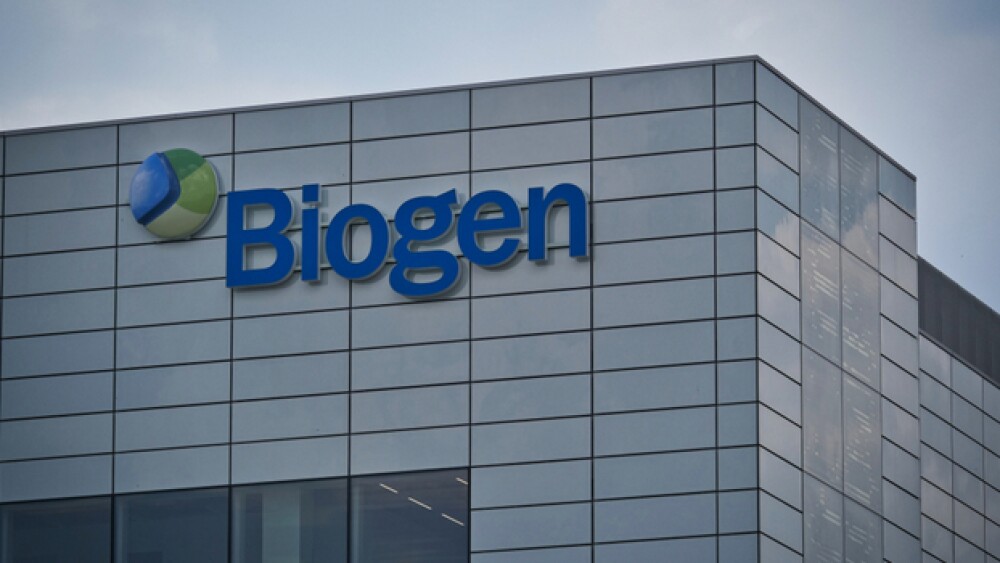Alzheimer’s patients and their families wait with hope that this will mean some offer of treatment, while physicians that treat Alzheimer’s patients are mulling the implications of the drug, often with hesitancy and skepticism.
PictureDesignSwiss/Shutterstock
The U.S. Food and Drug Administration (FDA) has a target action date of June 7 for Biogen’s aducanumab for Alzheimer’s disease. The short-term fortunes are at stake. If the FDA approves, shares are likely to soar; if rejected, likely to plunge, at least temporarily.
Meanwhile, Alzheimer’s patients and their families wait with hope that this will mean some offer of treatment, while physicians that treat Alzheimer’s patients are mulling the implications of the drug, often with hesitancy and skepticism.
Aducanumab is a monoclonal antibody that targets part of beta amyloid, an abnormal protein that accumulates in the brains of Alzheimer’s patients.
In March 2019, Biogen and Eisai announced they were abandoning the drug program after a futility analysis suggested the drug would not work. Then a few months later, they reported they had thoroughly analyzed the data and found that the Phase III EMERGE trial hit the primary endpoint in a subpopulation of the trial at the highest dose, showing a significant decrease in clinical decline. They submitted for approval with an initial date in March 2021, which after submitting additional data, was delayed until June 7.
In November 2020, the FDA’s Peripheral and Central Nervous System Drugs Advisory Committee voted against recommending the drug. Largely, the criticism is that the drug’s efficacy has not been proven, and there are doubts if the drug’s risk-benefit profile is worth approval.
Kirsten Hano, a former advertising executive who is 54 years old, was diagnosed in November with early-onset Alzheimer’s disease. She falls into the camp of people hoping the FDA approves the drug, even with all the skepticism.
“When you get into the situation that I’m in, you’re looking for anything that can help,” Hano told The Boston Globe. “The challenge with Alzheimer’s is that there hasn’t been much that actually works, and the fact that there’s something that can work and can extend at least some of your life … It gives me much more hope that I can stick around a little while.”
Jason Karlawish, professor of medicine, medical ethics and health policy, and neurology at the University of Pennsylvania’s Perelman School of Medicine, and co-director of the Penn Memory Center, falls into the camp of skeptics. He wrote an op-ed in STAT titled, “If the FDA approves Biogen’s Alzheimer’s treatment, I won’t prescribe it.”
“If it gets the green light, I can’t see myself recommending it to my patients,” Karlawish wrote. “Colleagues of mine in the Alzheimer’s sphere are also reluctant about approving aducanumb. Why? Biogen hasn’t made a convincing case for it.”
He believes the benefits are ambiguous at best and not worth the cost, agreeing with an analysis by the Institute for Clinical and Economic Review (ICER). In May, the drug pricing watchdog, which has no official role in setting drug prices, issued a report slamming aducanumab for insufficient efficacy and recommending a low price point if the FDA approved it.
Analysts have forecasted annual sales of the drug of about $4.8 billion by 2026, with a projected price tag of about $50,000 per year per patient. On the other hand, ICER says if it is approved, it should be priced between $2500 and $8300 per patient per year and said clinical trial data to date were “insufficient” to determine if the drug actually helped patients.
An April op-ed by the Wall Street Journal, however, argued for the drug. The WSJ first said that the late-stage trial showed that a high dose of the drug removed 71% of the amyloid plaques that had accumulated over 18 months.
It also, more importantly, demonstrated a significant impact on disease progression. After 78 weeks of treatment, patients on the high dose were 84% “less of a burden to care givers than were the controls.” There was a 91% smaller decline in their capacity to prepare a meal and a 39% slower reduction in their ability to discuss current events.
“In short,” WSJ wrote, “patients treated with high doses of Biogen’s drug were much more independent and capable.”
Karlawish argued that “aducanumab is not the drug to launch a new era of Alzheimer’s treatment. It hasn’t been properly studied, and so the FDA has incomplete data to form a judgment. The cause of this is a series of decisions that were good for business but bad for science and patient care.”
Karlawaish, like everyone else outside the FDA and Biogen, has not seen the additional data the company submitted, which delayed the target action date.
Stephen Salloway, director of neurology and the Memory and Aging Program at Butler Hospital in Providence and professor at Brown University, treated patients as part of the clinical trial. He said he was impressed with the drug. He treated 17 patients, and 10 did not decline while on the therapy. “This is the first time in more than 100 trials for Alzheimer’s that we noticed this type of clinical effect,” he told The Boston Globe.
Henry Magendantz, a retired obstetrician-gynecologist, received the first dose of the drug about five years ago. His wife, Kathy Jellison, says she believes aducanumab prevented the disease from advancing. He was able to volunteer at a free clinic, travel to London with her, and spent time with their nine grandchildren. Jellison said, “I think it’s a miracle drug, quite frankly.”
After the trial was halted and Magendantz was taken off the drug, his dementia grew worse. He is now in assisted living.
Like many with Alzheimer’s or their families, Hano said, “Anything they can do to eke out any bit of time for people is worth it.”





